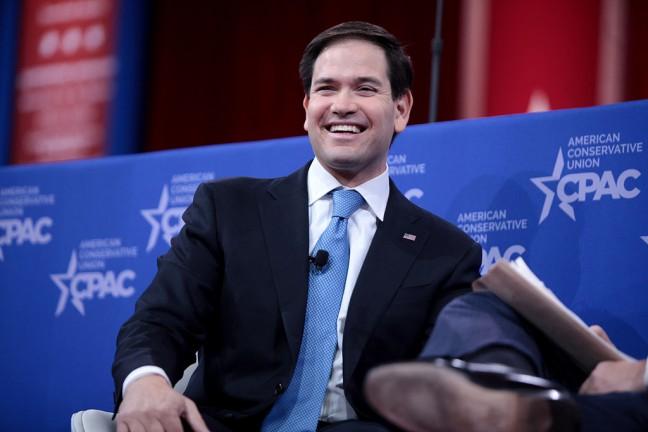As I look back on the night of the 2010 midterm elections, it is not the astounding wave of Republican victories that comes to mind, but instead the victory speech a newly elected senator and son of two Cuban immigrants gave.
As a high school freshman, I knew nothing about this young man’s political stances, or anything about his history. To me, and to much of America, he represented a political rarity in that moment. A blank canvas. As he spoke, his words wove a beautiful image on the canvas of past overcome adversities and new dreams, and for me, the hope for a better tomorrow.
United States Sen. Marco Rubio, R-Florida, did not lay out the details of how we would achieve these dreams, or how exactly tomorrow would be better, but it didn’t matter. As just another teenager sitting in front of a TV, soaking in words of hope and passion, I couldn’t help but believe in what he so fervently preached.
Today, Rubio has established himself as one of the most notable faces in politics. As a voter who tends to lean left, I am no longer ignorant of the differences in our beliefs on policy. But my first thought when I think of Rubio remains his speech from 2010. No matter how much I disagree with his beliefs on the economy, on foreign policy or on social issues, I can’t help but find him inspiring.
His inspiration is more than words and actions. It is tangible and easily summarized. Rubio embodies the American Dream. Growing up as the son of two Cuban immigrants in a community of Cuban exiles, he represents a slice of America where success is not given, but earned.
Instead of receiving an Ivy League education like U.S. Sen. Ted Cruz, R-Texas, and Donald Trump, Rubio spent part of his collegiate career at a community college before graduating from the University of Florida. He continued on to the University of Miami for law school, and by the conclusion of his education, was swimming $100,000 deep in student debt.
In lieu of pursuing higher-paying, private sector jobs, which may have alleviated his overwhelming student loans, he instead chose to dedicate himself to public service. In 2000, he was elected into the Florida House of Representatives, and for the next 10 years would serve in roles including majority leader and speaker of the house until 2010, when he was elected into the U.S. Senate.
There is a certain irony in the fact that the son of Cuban immigrants embodies the American dream more than any other candidate, during an election cycle where the idea of banning immigrants has garnered populist support. Sixty years ago, when Rubio’s parents immigrated to America, our great enemy was communism. Communist Cuba’s proximity to America represented a great threat to our country.
Today, the Republican Party has deemed our great enemy to be Islamic extremists with the Syrian refugees as the great threat. Rubio displays what can happen when we accept the refugees from a regime representing our enemy with open arms instead of prejudice.
The president of the U.S. has two main responsibilities. The first lies in guiding the policies that the American government will pursue during his or her term in office. The second lies in a much different place. The second responsibility of the president is to lead the people of America. As the leader of the U.S., the president must create a feeling of safety in the citizens of America and inspire the next generation.
In this second responsibility, Rubio would sparkle. When America’s greatest fear is refugees fleeing from our enemy, nobody can make the people feel safer than a child of refugees from our old enemy. When the next generation looks to the president for inspiration, with Rubio in office, they would see the American dream shining back at them.
Connor Allen (callen7@wisc.edu) is a sophomore majoring in economics, history and marketing.














